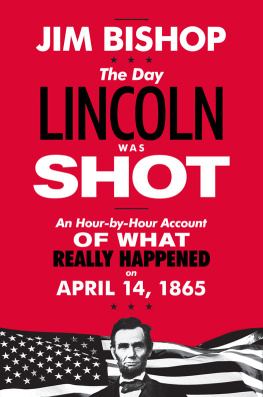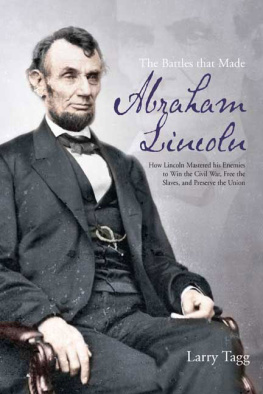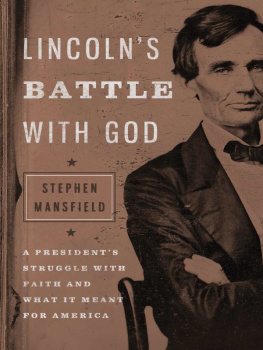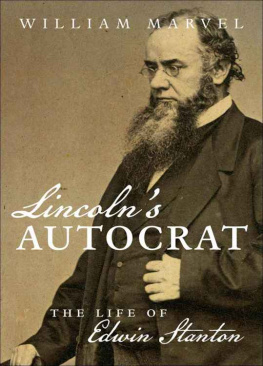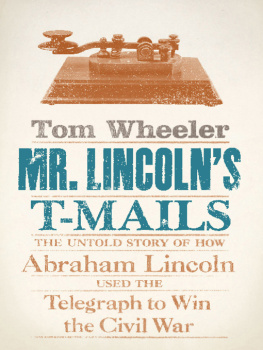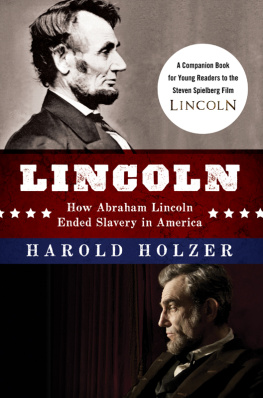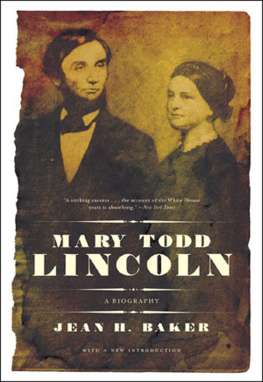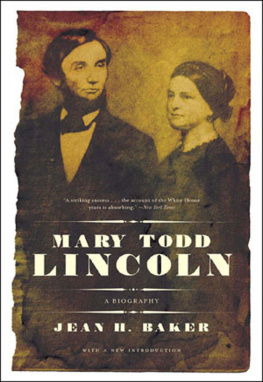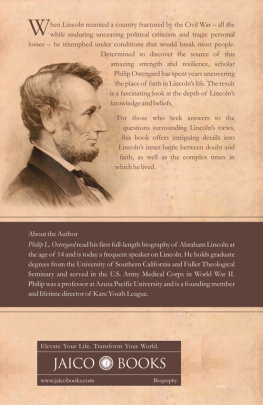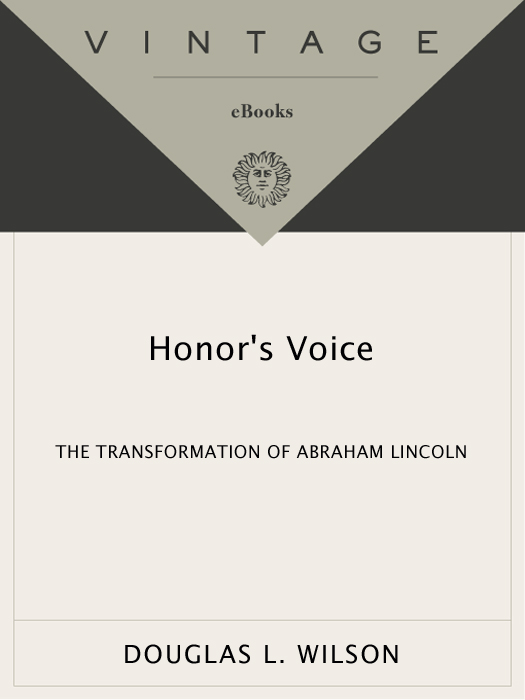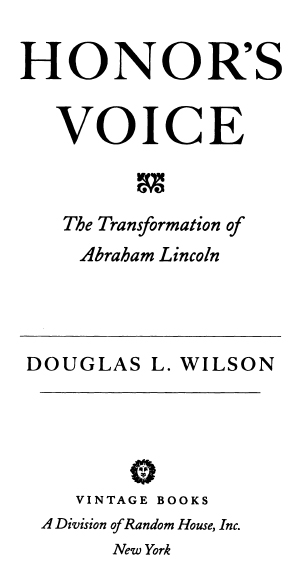ACCLAIM FORDouglas L. Wilsons
HONORS VOICE
This is the best account of the emotional mysteries of a maturing Lincoln. Wilson makes the dead come back to testify.
Garry Wills
A remarkable eleven years. Abraham Lincoln in little more than a decade lived and defined the American experience.
The Boston Sunday Globe
Lincolns story is a rebuke to all who believe identity is destiny, and in that sense his is the story of all that is best in the American experiment.
The Wall Street Journal
Fresh and fascinating. [Wilson] adds much to our understanding of who the man behind the legend really was.
Fort Worth Star-Telegram
More than just another addition to the shelves full of Lincolniana, its history that explores how history gets told and retold.
USA Today
A deeply revealing picture of Lincolns makeup that most previous biographies barely scratch the surface of.
Booklist
A detailed, informative and often entertaining account of the rising young Lincoln and his world. A fascinating piece of historiography.
Washington Times
Douglas L. Wilson
HONORS VOICE
Douglas L. Wilson is Co-director of the Lincoln Studies Center at Knox College in Galesburg, Illinois.
ALSO BYDouglas L. Wilson
Lincoln Before Washington:
New Perspectives on the Illinois Years
EDITED BYDouglas L. Wilson
Herndons Informants: Letters, Interviews, and Statements About Abraham Lincoln
(with Rodney O. Davis)
Thomas Jeffersons Library: A Catalog with the Entries in His Own Order
(with James Gilreath)
Jeffersons Literary Commonplace Book
The Genteel Tradition:
Nine Essays by George Santayana
FIRST VINTAGE BOOKS EDITION, JUNE 1999
Copyright 1998 by Douglas L. Wilson
Maps copyright 1998 Alfred A. Knopf, Inc.
All rights reserved under International and Pan-American Copyright Conventions. Published in the United States by Vintage Books, a division of Random House, Inc., New York, and simultaneously in Canada by Random House of Canada Limited, Toronto. Originally published in hardcover in the United States by Alfred A. Knopf, Inc., New York in 1998.
Vintage Books and colophon are registered trademarks of Random House, Inc.
The Library of Congress has cataloged the Knopf edition as follows:
Wilson, Douglas L.
Honors voice: the transformation of Abraham Lincoln / by
Douglas L. Wilson. 1st ed.
p. cm.
eISBN: 978-0-307-76581-9
1. incoln, Abraham, 1809-1865Political career before 1861.
2. PresidentsUnited StatesBiography. 3. IllinoisPolitics
and governmentTo 1865. I. Title.
E457.35.W547 1998
973.7092dc21
[B] 97-37586 CIP
www.vintagebooks.com
v3.1
For Sharon
Can Honors voice provoke the silent dust ?
Thomas Gray, Elegy Written in a Country Churchyard
Contents
INTRODUCTION
W HEN A BRAHAM L INCOLN was nominated for the presidency in 1860, the leading Republican paper in Illinois, the Chicago Press and Tribune, assigned John L. Scripps, one of its principal editors, to write a brief campaign biography. While Lincoln duly cooperated by furnishing biographical information and answering questions, the candidate had one serious reservation. The chief difficulty I had to encounter, Scripps wrote to Lincolns law partner and biographer, William H. Herndon, was to induce him to communicate the homely facts and incidents of his early life. He seemed to be painfully impressed with the extreme poverty of his early surroundings the utter absence of all romantic and heroic elements. Knowing that there was electoral gold to be mined from Lincolns humble beginnings, Scripps pressed his inquiries until, as he reported to Herndon, Lincoln finally protested: Why Scripps said he, on one occasion, it is a great piece of folly to attempt to make anything out of my early life. It can all be condensed into a single sentence, and that sentence you will find in Grays Elegy:
The short and simple annals of the poor.
Thats my life, and thats all you or any one else can make of it.
But if Lincoln did not think his early life could be idealized and did not welcome a romanticized version of it, his wishes were coolly ignored. His most influential campaign biographers, such as Scripps and William Dean Howells, made much of their candidates bottom-rung beginnings, which served to accentuate his dramatic rise and make But the successful prosecution of the Civil War and his assassination immediately thereafter would change all that. With his murder and subsequent martyrdom, Lincolns ascension from poverty and obscurity to the highest office in the land was widely seen as miraculous, or something very near it, and his entire career became invested with symbolic meaning.
The romanticization of Lincolns early life thus had its beginnings in the historical circumstances and romantic ethos of the nineteenth century, but it has persisted with great tenacity and continues to the present day. The sentimental excesses of this tradition brought about a strong reaction from professional historians earlier in this century, so that the central issue in Lincoln studies has become, according to James Hurt, the conflict between romance and reality. As a result, the goal of professional Lincoln historians has been to recover the real Lincoln of history as opposed to the mythic Lincoln of the popular imagination. The practical effect of this has been that scholars and other students of Lincoln have virtually abandoned his early life as a field for serious investigation and have instead concentrated their efforts almost exclusively on his presidential years.
Lincolns early life and the circumstances that brought about his emergence as a man of consequence have thus been little studied in recent years. Nonetheless, they still constitute an important part of the Lincoln story and, it can be argued, are in particular need of attention. The rough conditions in which Lincoln was raised and made his way as a young man are undeniable, but they are all too easily rationalized as what he rose above, rather than what stamped his character. It is, of course, the transcendent Lincoln that has been honored and admired, rather than the unsophisticated country bumpkin he once was. But passing too quickly over the process detracts from our understanding and appreciation of the product. To fully appreciate the historical phenomenon of Lincolns rise from obscurity to greatness, we must come to terms with the process by which he emerged and distinguished himself. The romantic Lincoln of legend rose by dint of his moral superiority and commitment to higher and better things: he didnt swear, use tobacco, or drink; he read uplifting things, such as the Bible and Shakespeare; he aimed at higher goals than subsistence farming or manual labor, setting his sights on a profession and progressive politics.
Like the Lincoln of legend, the historical Lincoln did most of these things, more or less. But he did other things as well that tell us at least as much about his rise and even more about the road of his ascent, a road that was often rockier (and by turns swampier) than the legend allows. Though frequently played down or lost sight of in telling Lincolns story, there were more difficulties to surmount than poverty and ignorance and more temptations than profanity and strong drink. That as a young man he was stronger and faster and readier with a joke or a story and better informed than those around him is well known. But that he also struggled with doubts and fears about who he was and what he could become, that he was sharply at odds with the prevailing religious beliefs of the time, or that as a young man he suffered from periods of deep depression and moments of suicidal desperation are only dimly a part of the picture, if we are aware of them at all.


